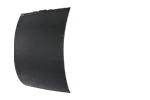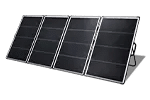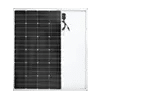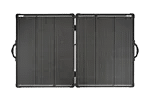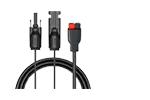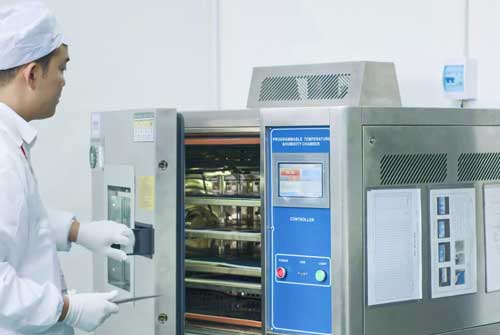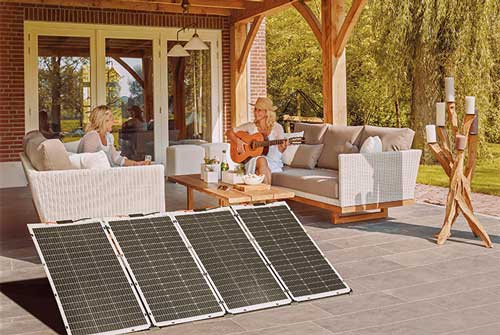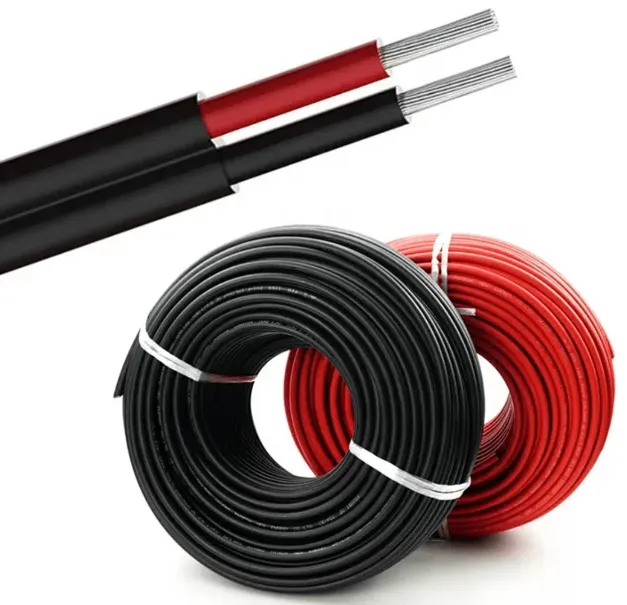As we all know, solar wires and cables play a vital role in photovoltaic systems. They are key components that ensure the efficient operation of the system, playing a key role in converting solar energy into electricity and delivering it to where it is needed. These wires and cables must operate reliably under a wide range of environmental conditions to ensure that the system operates efficiently and safely.
And when we plan the cabling in advance, we first need to clarify whether DC cables are required and whether the application requires AC cables. Different types of solar cables may be required in different situations. Sungold will open the door to understanding the difference between dc and ac cables.
what is a DC cable?
A dc cable is responsible for connecting solar panels to each other and to the solar inverter. DC cables are single-core copper cables that are insulated and sheathed. They are made of high-quality copper cores with good conductivity and durability. DC cables are used inside photovoltaic solar panels. They are typically used in modules or tandem panels and are UV, heat and weather resistant.
What are AC cables?
AC cables are primarily used to connect solar inverters to the grid and other power distribution equipment. In small photovoltaic systems, they utilize three-phase or single-phase connections to ensure that solar energy is converted to AC power that can be used in a home or industrial setting.
The Importance of Choosing Quality Solar Cables
As already mentioned, solar cables transmit DC solar energy from one part of the PV system to another. It is because of the important conduction function they undertake that it is vital to choose quality solar cables in order to stabilize the safety and longevity of the solar system.
Solar cables can be installed exposed to UV rays, temperature extremes and air humidity. They can withstand the rigors of indoor and outdoor PV systems. Quality cables can also withstand stresses from compression, bending or stretching, as well as chemical stresses in the form of acids, alkaline solutions and salt water.
Ordinary cables, on the other hand, cannot cope with these harsh conditions and are prone to adverse effects.
Frequently asked questions about dc and ac cables
Q: Can I use ac cable for DC application?
It is not recommended to use AC in DC cables. DC cables are designed to transmit direct current, while AC is a current that changes its current direction over time. Due to the different characteristics of these two current types, there is no compatibility between DC cables and AC.
With AC current, the polarity of the current (negative vs. positive) changes as power flows through the cable, alternating between flowing in one direction and then changing as it flows in the other direction. However, DC current does not change polarity. It flows in only one direction and passes evenly through the cable with no alternating characteristics. These differences in current also lead to different choices of cables.
Q: Can I put an additional protective layer on my solar cable?
A: It is usually not recommended to add additional protective layers to solar cables. Solar cables are already designed with water, weather and UV resistance in mind, and additional protective layers may affect the flexibility and heat dissipation properties of the cable.
Q: How can I be sure that the solar cable I choose meets the appropriate standards?
A: When selecting solar cables, make sure they comply with the relevant local or international standards and regulations, such as NEC (National Electrical Code), UL (Underwriters Laboratories) or IEC (International Electrotechnical Commission). These standards ensure the quality and safety of the cables.


